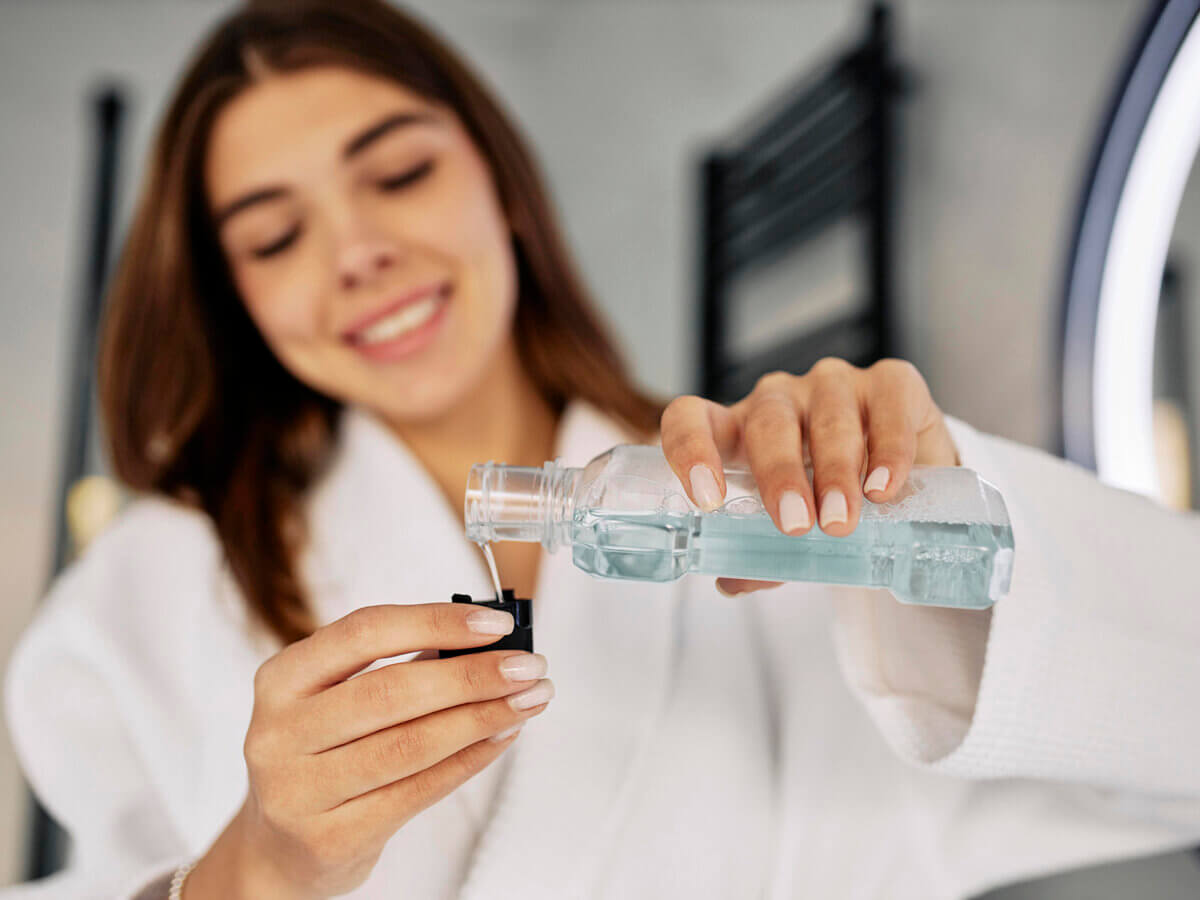Blog
Dental hygiene tips for healthy teeth & gums

Is It Safe To Use Hydrogen Peroxide As Mouthwash Everyday?
Hydrogen peroxide is a versatile product that may be used to clean, disinfect, and whiten teeth, among many other things. Some individuals consider using hydrogen peroxide as a mouthwash because of its antibacterial characteristics. However, before introducing hydrogen peroxide into your oral care routine, it is crucial to understand the potential hazards and advantages. In this piece, we’ll talk about the pros and downsides of using hydrogen peroxide as a mouthwash daily.
Hydrogen peroxide has antiseptic properties because it is an oxidizing agent that kills bacteria and other germs by releasing oxygen. The foaming action caused by the oxygen release effectively removes food particles and decreases the number of microorganisms in the mouth. Hydrogen peroxide is a mild antiseptic and disinfectant that has found widespread use in the dental industry.
Benefits of Hydrogen peroxide mouthwash
Potential advantages of using hydrogen peroxide as a mouthwash include:
- Hydrogen peroxide’s antibacterial characteristics effectively reduce the halitosis-causing germs contributing to bad breath.
- Assisting in treating gingivitis, the first stage of gum disease is brought on by a buildup of plaque and germs. Hydrogen peroxide’s potential to lessen bacterial plaque could make it useful in treating gingivitis.
- Hydrogen peroxide is found in some over-the-counter teeth whitening solutions. Using it as a mouthwash could have a minimal whitening impact by eradicating superficial stains.
Concerns About Use:
Hydrogen peroxide could be useful, but it’s important to use it cautiously and be informed of any risks before doing so.
- Proper dilution is required before using hydrogen peroxide as a mouthwash. Solutions of 3 percent hydrogen peroxide are the norm for commercially accessible products sold in drugstores. If you want to take it orally, dilute it more with water. Mixing one part hydrogen peroxide with three parts water is generally considered safe.
- Hydrogen peroxide should never be ingested, so that’s rule number two. Hydrogen peroxide can cause chemical burns to the digestive tract and other unpleasant symptoms if ingested. The hydrogen peroxide solution should be swished and then discarded.
- Hydrogen peroxide can induce mouth discomfort and sensitivity, especially when administered at full strength or in excess amounts. Stop using it and see a dentist if you feel any pain.
- The risk of getting mouth or canker sores is increased by using hydrogen peroxide as a mouthwash regularly or for an extended period.
- The mouth is home to a wide variety of microorganisms, some of which are essential to maintaining good oral health. Hydrogen peroxide mouthwash may harm the oral microbiome by upsetting this delicate balance.
- Daily use of hydrogen peroxide as a mouthwash may lead to enamel erosion over time due to its acidic nature, although infrequent usage may not adversely harm dental enamel.
Hydrogen peroxide mouthwash substitutes:
There are several less hazardous options for maintaining proper dental hygiene if you’re worried about the risks of using hydrogen peroxide.
- Fluoride Mouthwash: This oral rinse contains fluoride, fortifying tooth enamel and staving off cavities.
- If you’re looking for a mouthwash that won’t dry out your mouth or irritate your gums, look for one that doesn’t include alcohol.
- Antimicrobial mouthwash: Chlorhexidine, an antimicrobial agent in several types of mouthwash, can kill the germs that cause plaque and gingivitis.
- Natural Mouthwashes: Tea tree oil and peppermint oil, for example, are two natural mouthwashes with relaxing and antiseptic effects.
Conclusion:
Hydrogen peroxide as a mouthwash may help with oral hygiene by eliminating foul breath and easing the discomfort of gingivitis. However, it is important to dilute it and not swallow it straight for safe use. Hydrogen peroxide mouthwash has the potential to cause irritation, enamel erosion, and disruption of the oral microbiome if used often or over an extended period.
Add hydrogen peroxide or any other new product to your oral care routine. In that case, it is best to discuss it with your dentist first to ensure its safety and effectiveness. Dentists are trained to assess each patient individually and suggest the best mouthwash and other oral care products based on those assessments.
